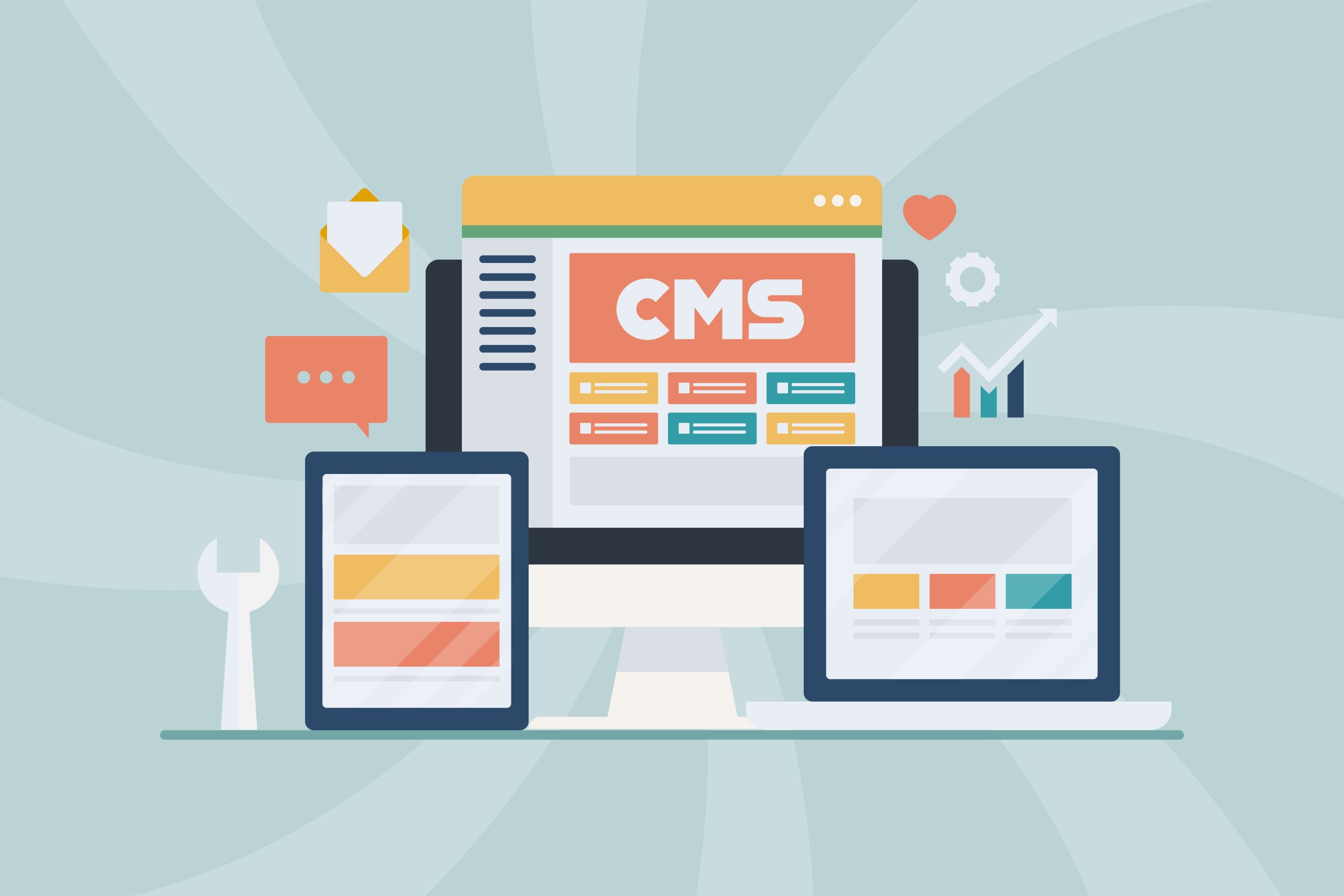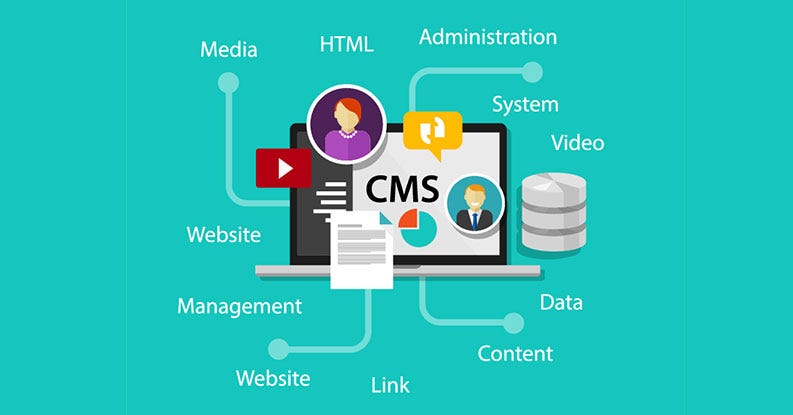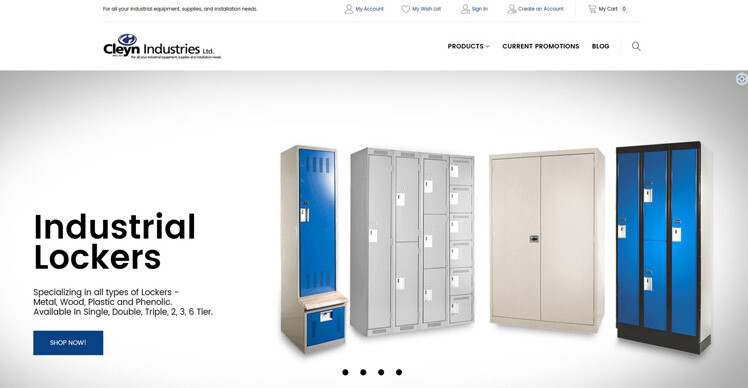eCommerce AI | Web Apps | AR/VR Software – ECA Tech
- Home
- 5 Best Tips for Choosing the Right CMS
5 Best Tips for Choosing the Right CMS

September 30, 2024 - Technology
In today’s digital landscape, a Content Management System (CMS) plays a critical role in how businesses, bloggers, and content creators manage, publish, and update their digital content. Choosing the right CMS can make a substantial difference in how efficiently your website operates, how easy it is to update, and how effective it is in attracting and retaining visitors. With countless options available, selecting the best CMS for your needs might seem like a daunting task.
This guide will break down the process and provide you with five essential tips for choosing the right CMS. Whether you’re a small business, a growing startup, or a large enterprise, these tips will help you navigate the complexities of choosing a system that aligns with your goals.
- Essential
- Substantial
- Easy-to-use
- Flexible
1. Understand Your Website Requirements
The first and most critical step in choosing the right CMS is understanding the specific requirements of your website. The best CMS for one business may not work well for another. Therefore, you must evaluate your needs, considering both current and future objectives.
Types of Websites and Their Requirements
Different types of websites have unique requirements. Here are some common types and the features they often need from a CMS:
E-commerce Websites: If you’re running an online store, you’ll need a CMS that integrates with e-commerce features like shopping carts, payment gateways, inventory management, and product catalogs. The ability to handle secure transactions, order tracking, and customer management is crucial.
Blogs and News Websites: For blogs and news portals, content management is at the core. The CMS should provide easy-to-use content creation and editing tools, along with options for scheduling posts, categorizing content, tagging, and media management.
Corporate Websites: For companies, a CMS should enable multi-page website creation, along with features like service portfolios, team management, case studies, and testimonials. The system should allow easy integration with Customer Relationship Management (CRM) systems and support forms and feedback collection.
Portfolio Websites: These websites need excellent design flexibility and robust media management for images, videos, and other content. For designers, artists, and creative professionals, the ability to showcase high-quality visuals is essential.
Scalability and Growth
When selecting a CMS, think about where your website will be in the next few years. Will you add new sections, features, or integrations as your business grows? Ensure the CMS you choose can scale with you.
Key Questions to Ask
- How often will you update content?
- What kind of user experience do you want to provide?
- Will you need custom features or extensive functionality?
- Are you planning to handle high levels of traffic or expect growth soon?
- Do you need multilingual capabilities?
By understanding your needs and setting clear objectives, you will narrow down your options and find a CMS that aligns with your business strategy.
2. Assess Ease of Use and Flexibility
No matter how powerful a CMS is, it must be easy to use for your team. The CMS you choose should not require a steep learning curve or extensive technical knowledge unless you have a dedicated team of developers.
WYSIWYG Editors and Intuitive Interfaces
Look for a CMS that offers a “What You See Is What You Get” (WYSIWYG) editor. These editors allow non-technical users to format text, add images, embed videos, and create pages visually without touching code. An intuitive, drag-and-drop interface can be a game-changer for businesses without full-time web developers.
Content Creation and Management
A strong CMS should simplify content creation, editing, and publishing. Features to look for include:
- Real-time collaboration tools: If multiple people on your team will be editing or updating the website, a CMS that supports team collaboration in real time is essential.
- Content versioning: This feature lets you track changes, view previous versions, and revert to earlier drafts if necessary.
- Templates and themes: Pre-designed templates can save time and effort, ensuring that your site looks professional from day one. Look for CMS platforms with responsive templates to ensure your website looks great on any device.
User Management and Permissions
The right CMS should support robust user role and permission management. This allows you to assign specific roles (e.g., administrators, editors, contributors) to different team members and control who has access to what features. Large organizations will need this to ensure accountability and security.
3. Evaluate Customization and Extensibility
One of the biggest advantages of using a CMS is the ability to customize your website to fit your unique needs. A good CMS should offer ample flexibility to allow you to extend its features through plugins, modules, or integrations with third-party services.
Plugins and Extensions
Many CMS platforms offer plugin systems that allow you to add new features without touching the code. For example:
- WordPress: Known for its extensive library of plugins (over 58,000), which allow you to add everything from contact forms and SEO tools to e-commerce capabilities and social media integrations.
- Drupal: Offers modules that allow you to extend its core functionality for everything from performance optimization to security enhancements.
- Joomla: Provides thousands of extensions to customize features like galleries, forms, and membership systems.
Be cautious, however—while plugins offer quick solutions, too many can cause performance issues or compatibility conflicts, so choose wisely.
Custom Development
In some cases, you may need a feature that is not readily available through plugins or themes. If you anticipate needing custom development, consider how easy it will be to find developers who are proficient in the CMS’s technology stack. Open-source platforms like WordPress, Joomla, and Drupal tend to have large developer communities, making it easier to find the right help when needed.
APIs and Integrations
Modern businesses rely on numerous digital tools—email marketing platforms, CRM systems, social media platforms, and more. Your CMS should easily integrate with these systems via APIs. Before choosing a CMS, check if it supports integration with the tools you use or might want to use in the future.
4. Focus on SEO and Performance
Your website’s ability to attract visitors largely depends on how well it performs in search engines. A good CMS should have robust Search Engine Optimization (SEO) features and allow for performance optimization.
Built-in SEO Features
SEO-friendly CMS platforms include features such as:
- Customizable URLs: Search engines prefer URLs that are clean and descriptive. Choose a CMS that allows you to customize the URLs for each page.
- Metadata Management: Title tags, meta descriptions, and header tags (H1, H2, etc.) are critical for SEO. Ensure your CMS allows easy editing of these elements.
- Sitemap Generation: A CMS that automatically generates XML sitemaps helps search engines index your site properly.
- Image Alt Text: Search engines also index images, so a CMS that lets you easily add alt text to images is a plus.
Performance Optimization
Speed is an essential factor for both user experience and SEO rankings. A CMS should provide:
- Caching options: Caching reduces the time it takes to load pages by storing static versions of your content.
- Image optimization: Large image files can slow down your site. Some CMS platforms offer built-in image compression features.
- Mobile responsiveness: With mobile traffic accounting for a significant portion of website visits, the CMS you choose should ensure mobile optimization.
Security Measures
Google also considers website security as part of its ranking algorithm. A CMS should offer basic security features like SSL support, two-factor authentication, and regular updates to address vulnerabilities. If you’re handling sensitive data, ensure the CMS adheres to the necessary compliance standards (e.g., GDPR).
5. Consider Support and Community
Lastly, when choosing a CMS, take into account the type of support and resources available. Even the most user-friendly systems will require some level of technical support, whether it’s setting up your site, troubleshooting issues, or making updates.
Official Support and Documentation
Some CMS platforms, especially paid ones, offer dedicated support. This could come in the form of:
- Customer service: Direct contact with a support team via email, chat, or phone.
- Comprehensive documentation: Good CMS platforms will have detailed guides, how-tos, and FAQs to help you navigate challenges on your own.
- Tutorials and training: Video tutorials and webinars can help you get the most out of your CMS.
Community and Forums
Open-source CMS platforms like WordPress and Joomla have large, active communities where users share knowledge, solutions, and best practices. Community support is particularly valuable because:
- You can find plugins, themes, and other resources developed by community members: Often, other users have encountered and solved the same problems you’re facing.
- Developer contributions: Many developers contribute to open-source platforms, creating a constant stream of new plugins, themes, and updates.
Paid vs. Open Source CMS
When evaluating support, consider whether you prefer a paid CMS (which often comes with more official support) or an open-source CMS (which may have more community resources). If your team doesn’t have strong technical expertise, a paid solution with guaranteed support might be a safer bet.

choosing the right content management system
Choosing the right CMS for your website is a crucial decision that can have long-lasting implications for your online presence, marketing efforts, and overall business success. By carefully evaluating your website’s requirements, assessing ease of use and flexibility, prioritizing customization and performance, and considering the support options available, you can select a CMS that not only meets your current needs but also grows with your business.
Remember, there’s no one-size-fits-all CMS solution. What works for a small e-commerce business might not be suitable for a large news website, and vice versa. Take the time to thoroughly evaluate your options and choose a CMS that aligns with your long-term digital strategy.
Choosing the right CMS for your website is not just about finding the most popular platform or the one with the most features—it’s about selecting a system that fits your specific needs and objectives. The CMS you choose will be the backbone of your digital presence, so it’s crucial to get it right.
First and foremost, understanding your website’s unique requirements is key. You need to consider what type of website you’re running, the features it will need, and how these needs might evolve over time. Are you running a blog, a corporate website, or an e-commerce store? The answer to this question will significantly narrow down your options and steer you toward CMS platforms designed to handle your specific content management tasks.
Next, ease of use and flexibility should be at the forefront of your decision. If your team lacks technical expertise, a CMS with an intuitive interface, WYSIWYG editor, and simple content management tools will empower your staff to create, edit, and manage content without relying on developers. On the other hand, if customization and extensibility are important to your project, choosing a CMS with a rich ecosystem of plugins, themes, and development support is crucial. This flexibility allows you to scale your website’s features without building everything from scratch.
The Content Management System you choose also plays a major role in SEO performance and site speed. A well-optimized Content Management System will help you improve search engine rankings, providing built-in tools for metadata, alt text, sitemaps, and responsive design. A slow, poorly optimized Content Management System could, on the other hand, hinder both user experience and SEO efforts.
Lastly, the importance of strong support systems—whether through official customer support or active communities—cannot be overstated. When issues arise, having access to timely support or community-driven solutions ensures that your website stays up and running smoothly.
Ultimately, your Content Management System choice should align with your long-term vision for your website, offering a balance of usability, customization, performance, and support. Making an informed decision based on these five key factors will help ensure that your website remains a powerful asset to your business for years to come. Taking the time to evaluate Content Management System options thoroughly will help you future-proof your online presence and set the stage for digital growth and success.
By clicking Learn More, you’re confirming that you agree with our Terms and Conditions.

FAQ
1. What is a CMS?
A Content Management System (CMS) is an incredibly powerful tool that plays a crucial role in simplifying the processes involved in creating, designing, and managing your website with remarkable ease and efficiency. It empowers users of all skill levels—from complete novices to seasoned professionals—to generate content, effectively organize it, and ensure their sites remain updated and relevant without requiring extensive technical knowledge or sophisticated coding expertise. This level of accessibility is particularly beneficial in today’s fast-paced digital landscape, where timely updates and content management are vital for success.
2. What factors should I consider?
Take a moment to thoroughly consider the various needs of your website, including the specific goals you aim to achieve, your current level of technical expertise, the overall costs involved in both development and long-term maintenance, as well as how user-friendly the platform or tools you choose will be for both you and your audience. Carefully evaluating these aspects will not only help you in making informed decisions but also ensure a more successful and satisfying website experience for visitors. By taking the time to assess these factors, you can create a more effective online presence that meets the expectations of your users and aligns with your business objectives.
3. What are some popular options?
WordPress, Drupal, Joomla, Squarespace, and Wix are some of the most common choices among users looking to create websites. Each of these platforms offers its own unique features and benefits, catering to different needs and preferences of individuals and businesses alike.
4. Can I switch later?
Yes, but it can be difficult.
5. Is custom always better?
Not necessarily. Pre-built ones can be good for smaller websites.
6. How can I learn more?
Research, ask experts, try demos, and think about your future goals.
